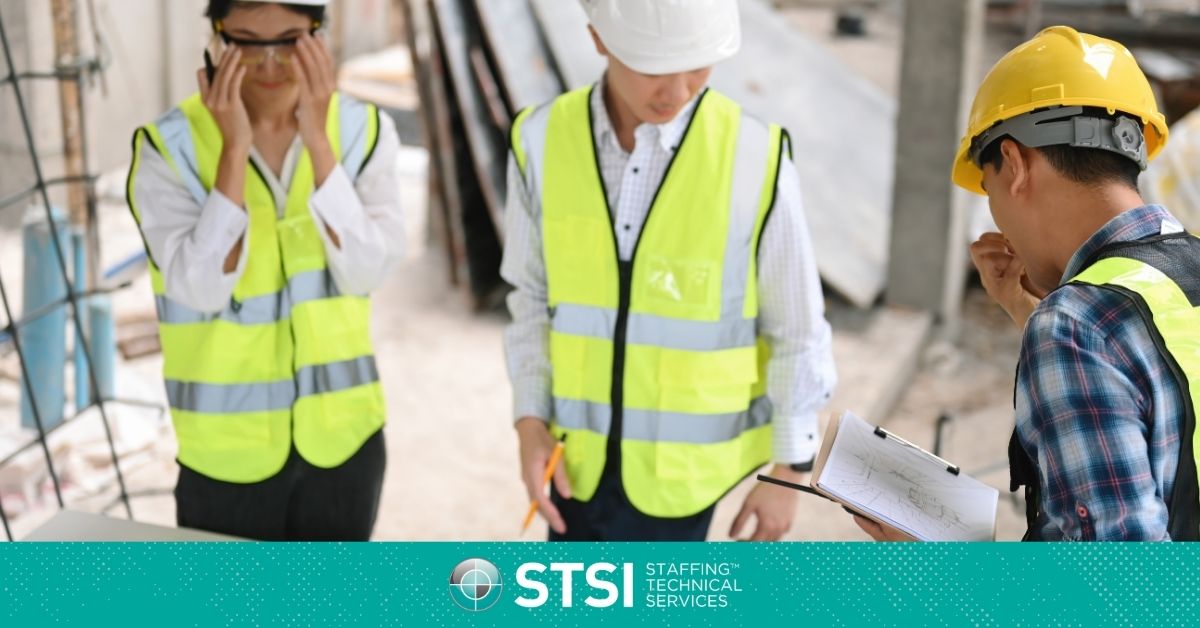Are you gearing up for your next big project and wondering how to structure your construction team efficiently? The right mix of roles can make the difference between delays and deliverables, cost overruns and budget wins, safety incidents and seamless operations.
To keep your projects on schedule and up to code, you need more than general labor, you need targeted, qualified specialists. From planning to execution, each role contributes to project speed, safety, and structural integrity.

Define Your Project Requirements First
A high-performing construction team starts with precision planning. Before engaging any staffing partner or allocating budget to hires, experienced project leaders must take a strategic approach to defining scope. This isn’t just about size or budget, it’s about understanding the technical implications of each phase and matching them with the right functional expertise.
To avoid mismatches and mid-project rework, clarify these core elements:
- Break down each construction phase: site prep, civil works, systems integration, and assess the degree of technical risk or regulatory oversight.
- Factor in geotechnical data, water management requirements, and emissions limits that may influence design and materials decisions.
- Identify which engineering roles (civil, structural, MEP, controls) must collaborate and at what milestones to avoid delays or redundancies.
- Map out the permitting landscape, especially for high-stakes projects like utilities, food production, or life sciences, which demand early QA/QC planning.
- Align team roles with owner expectations around timelines, certifications, and reporting cadence, especially for EPC or design-build contracts.
By scoping these factors with precision upfront, you ensure that the right technical hires (permanent or temporary) can deliver both speed and compliance from day one.
Hire the Right Project Manager Early
Your project manager should be one of your first hires. They oversee timelines, team coordination, and budget tracking.
Look for candidates with deep construction experience and strong leadership across engineering and trade teams.
An experienced PM ensures cross-discipline communication runs smoothly from day one. STSI sources seasoned leaders who hit the ground running.
Secure Civil and Structural Engineers
Civil engineers assess terrain, utilities, and environmental factors. Structural engineers handle frameworks, load paths, and durability.
These roles ensure compliance, safety, and long-term performance. Hiring the wrong expertise can lead to costly rework.
STSI helps you find engineers with specific industry experience, whether you’re building a water treatment facility or a large-scale distribution center.
Add MEP and Systems Designers
MEP design isn’t just a checklist; it’s the backbone of operational performance. For construction leaders managing high-spec environments like healthcare, industrial, or data centers, early engagement with the right MEP engineers is non-negotiable.
Systems must meet compliance thresholds and functional outcomes, meaning integration planning starts well before ground is broken.
Prioritize these focus areas when bringing MEP and systems experts onto your construction team:
- Align architectural layouts with MEP routing early to avoid change orders, clashes, or wasted slab penetrations.
- Ensure HVAC, electrical, and process utilities are right-sized for real usage, not just code minimums or legacy assumptions.
- Coordinate BAS (building automation systems), fire protection, and security infrastructure with IT and data teams to future-proof the build.
- Involve MEP experts in material selection to balance cost, durability, and energy targets, especially for LEED or net-zero projects.
- Use MEP input to set the timeline for inspections, testing, and final commissioning across all critical systems.
Include a Dedicated Quality Control Lead
Hiring a quality control engineer ensures materials and workmanship meet safety, spec, and regulatory standards throughout construction.
QC leads conduct inspections, oversee documentation, and interface with inspectors to keep work on track.
STSI provides quality control professionals with deep domain knowledge in your specific sector, from food production to energy.
Round Out the Team with Field Supervisors and Safety Managers
Field supervisors manage on-site productivity and maintain daily schedules. Safety managers enforce compliance and reduce accident risks.
Both roles are essential for high-performing, low-liability worksites.
Looking to build a team that’s productive and OSHA-ready? STSI can help you find field leaders who set the tone for operational excellence.
Bring in Specialized Technical Contractors When Needed
Not all talent needs to be long-term. For niche phases, like commissioning or trenchless tech, temporary engineers can have an immediate impact.
Using temporary technical contractors improves efficiency without bloating headcount.
Get Expert Help Building the Right Team
A well-rounded construction team includes more than just boots on the ground, it includes licensed engineers, safety leads, and systems experts.
From pre-construction planning to field support, STSI delivers expert staffing solutions tailored to your project’s complexity. Need help building a construction team that performs from day one? Contact STSI to access pre-vetted technical talent today.
